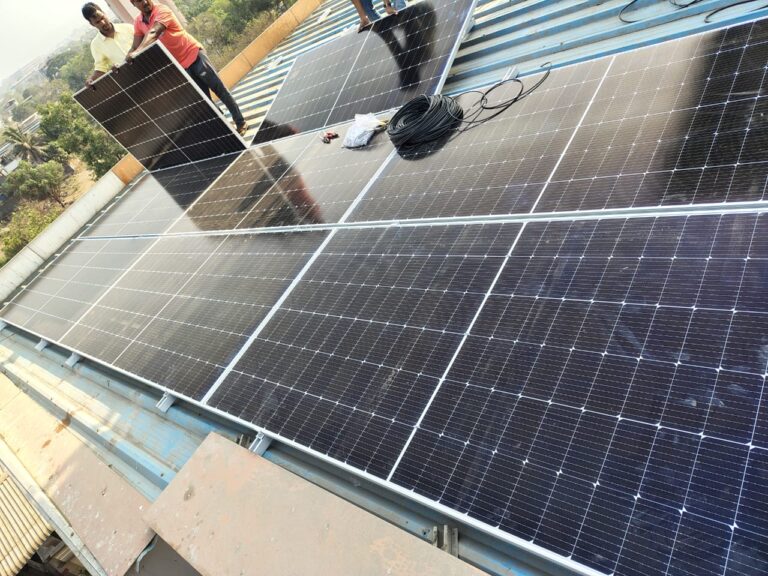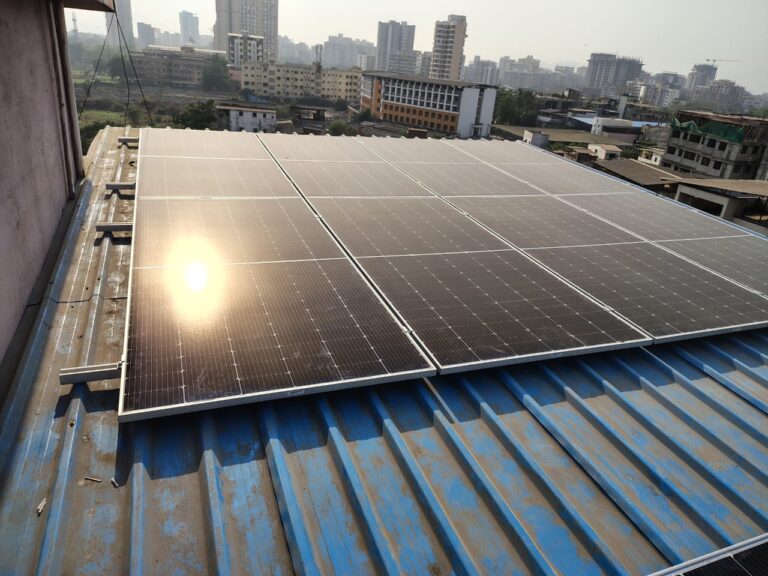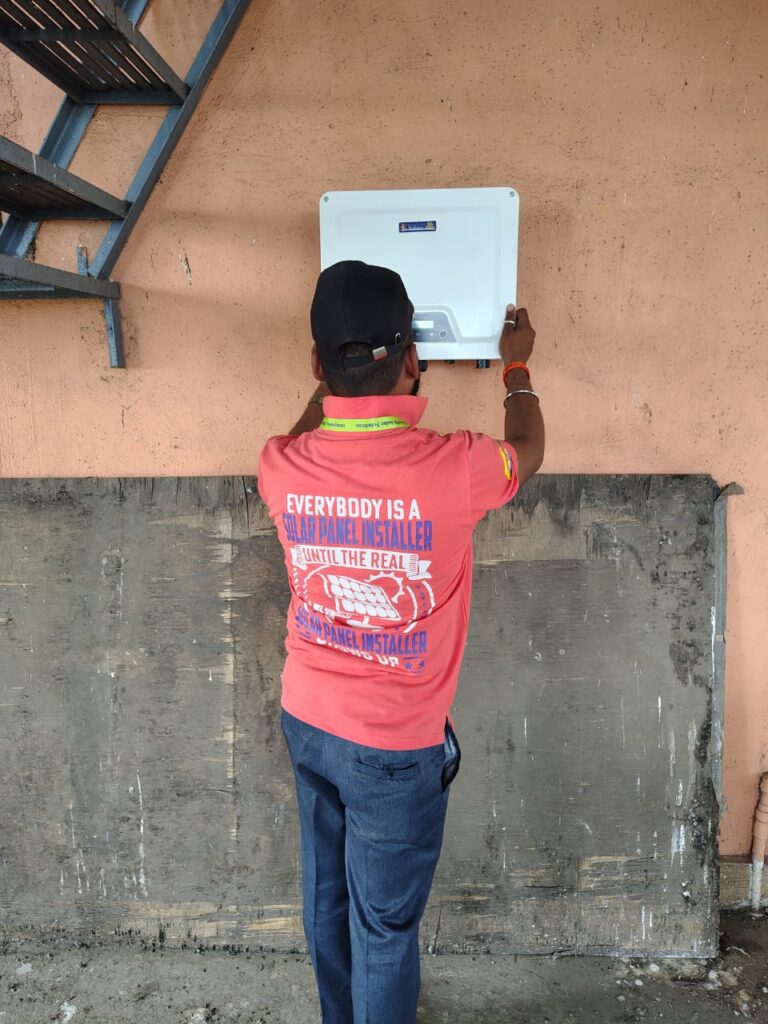ON-GRID SOLAR SOLUTION
An on-grid solar system, also known as a grid-tied solar system, is the most widely deployed form of rooftop solar across the world. These systems do not need any batteries and are connected to the utility grid power. It is best suited for customers with stable grid power and minimal power cuts. Other than homes, even educational institutions, industrial units, commercial establishments use these systems as their primary source of power. An on-grid system is designed to first allow solar energy to be consumed by the customer. Beyond this, if the customer needs any excess power, it is drawn from the grid. If the customer’s energy requirement is lower than power generated from the solar system, excess solar units are exported to the grid. This is possible through a “Net-meter”. The Net meter is provided by the electricity board, Net meter calculates how many units has your solar system generated and transmitted to the electricity board and also how many units have been consumed from the electricity board. Mandatory requirements are the need to check the sanction load mentioned on the electricity bill , get feasibility certificate & net Metering permission from the electricity board.
Technical Specification for On-Grid Solar Solution
- Note: The technical specification may vary based on the specific requirements of the project.
Solar Panel Array:
Type: Monocrystalline or Polycrystalline photovoltaic (PV) panels.
Efficiency: 18-22% (monocrystalline preferred for higher efficiency).
Capacity: 1 kW to 100 kW or more (scalable based on energy requirements).
Mounting: Rooftop or ground-mounted with tilt adjustment for optimal sunlight exposure.
Durability: Weather-resistant, with a lifespan of 25+ years.
Grid-Tied Inverter:
Type: Grid-tied inverter with anti-islanding protection.
Capacity: 1 kW to 100 kW or more (matches solar panel capacity).
Input Voltage: Compatible with solar panel array voltage (e.g., 300V to 600V DC).
Output Voltage: 110V/120V or 220V/240V AC (matches grid voltage).
Efficiency: ≥95% to minimize energy loss during conversion.
Certification: Compliant with grid standards (e.g., IEEE 1547, UL 1741).
Net-Metering-System:
Type: Bi-directional electricity meter.
Function: Measures energy imported from and exported to the grid.
Accuracy: Class 1 or higher for precise energy measurement.
Integration: Compatible with utility grid and solar system.
Credits: Enables earning credits for excess energy fed into the grid.
Mounting Structure:
Type: Aluminum or galvanized steel for durability.
Design: Fixed tilt or adjustable for optimal solar panel orientation.
Load Capacity: Designed to withstand wind and snow loads as per local regulations.
Installation: Rooftop or ground-mounted with proper anchoring.
Monitoring and Control System:
Type: IoT-enabled or standalone monitoring system.
Features: Real-time energy production, consumption, and grid export tracking.
Connectivity: Wi-Fi, Ethernet, or GSM for remote monitoring.
Alerts: Notifications for system faults or performance issues.
User Interface: Mobile app or web portal for easy access to system data.
Safety and Protection Devices:
DC Disconnect: Isolates solar panels from the inverter for maintenance.
AC Disconnect: Isolates the inverter from the grid for safety.
Surge Protection: Protects against voltage spikes from the grid or lightning.
Grounding: Proper grounding of the system for safety and compliance.
Anti-Islanding: Ensures the system shuts down during grid outages to protect utility workers.
Recent Projects





- How It Works
